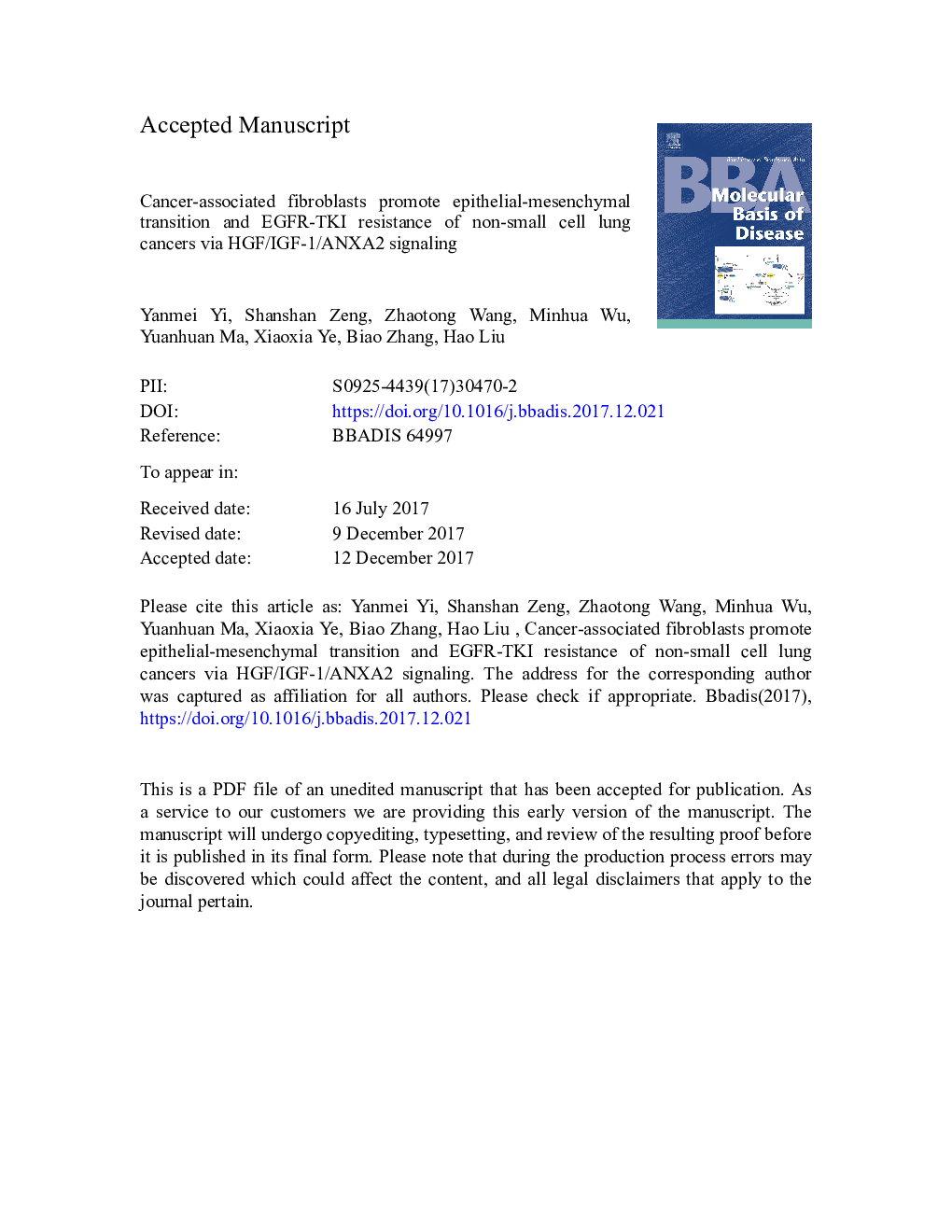| Article ID | Journal | Published Year | Pages | File Type |
|---|---|---|---|---|
| 8258628 | Biochimica et Biophysica Acta (BBA) - Molecular Basis of Disease | 2018 | 37 Pages |
Abstract
The involvement of the tumor stromal cells in acquired resistance of non-small cell lung cancers (NSCLCs) to tyrosine kinase inhibitors (TKIs) has previously been reported, but the precise mechanism remains unclear. In the present study, we investigated the role and mechanism underlying Cancer-associated fibroblasts (CAFs) in TKI resistance of NSCLCs. In vitro and in vivo experiments showed that HCC827 and PC9 cells, non-small cell lung cancer cells with EGFR-activating mutations, became resistant to the EGFR-TKI gefitinib when cultured with CAFs isolated from NSCLC tissues. Moreover, we showed that CAFs could induce epithelial-mesenchymal transition (EMT) phenotype of HCC827 and PC9 cells, with an associated change in the expression of epithelial to mesenchymal transition markers. Using proteomics-based method, we identified that CAFs significantly increased the expression of the Annexin A2 (ANXA2). More importantly, knockdown of ANXA2 completely reversed EMT phenotype and gefitinib resistance induced by CAFs. Furthermore, we found that CAFs increased the expression and phosphorylation of ANXA2 by secretion of growth factors HGF and IGF-1 and by activation of the corresponding receptors c-met and IGF-1R. Dual inhibition of HGF/c-met and IGF-1/IGF-1R pathways could significantly suppress ANXA2, and markedly reduced CAFs-induced EMT and gefitinib resistance. Taken together, these findings indicate that CAFs promote EGFR-TKIs resistance through HGF/IGF-1/ANXA2/EMT signaling and may be an ideal therapeutic target in NSCLCs with EGFR-activating mutations.
Related Topics
Life Sciences
Biochemistry, Genetics and Molecular Biology
Ageing
Authors
Yanmei Yi, Shanshan Zeng, Zhaotong Wang, Minhua Wu, Yuanhuan Ma, Xiaoxia Ye, Biao Zhang, Hao Liu,
